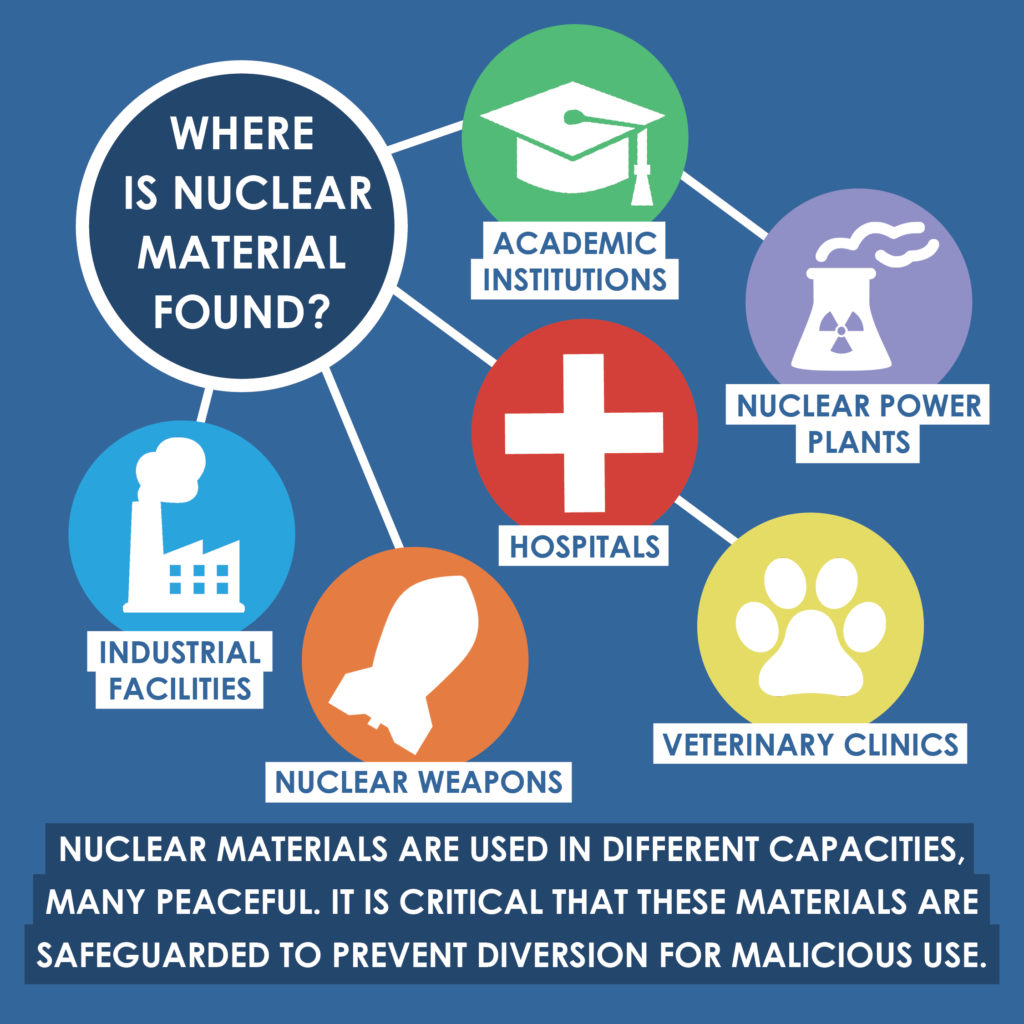 According to the International Atomic Energy Agency (IAEA), nuclear security is the prevention and detection of, and response to, theft, sabotage, unauthorized access, illegal transfer or other malicious acts involving nuclear material, other radioactive material or their associated facilities. In the simplest terms, nuclear security is the protection of nuclear materials against theft and nuclear facilities against sabotage. Nuclear material is housed in some unsuspecting facilities.
According to the International Atomic Energy Agency (IAEA), nuclear security is the prevention and detection of, and response to, theft, sabotage, unauthorized access, illegal transfer or other malicious acts involving nuclear material, other radioactive material or their associated facilities. In the simplest terms, nuclear security is the protection of nuclear materials against theft and nuclear facilities against sabotage. Nuclear material is housed in some unsuspecting facilities.
For instance, radioactive sources including cobalt, cesium and iridium isotopes are present in more than 150 countries worldwide, though only 20 states – down from 40 in 2005 – have at least one kilogram of weapons-usable fissile materials like highly-enriched uranium and plutonium. If such materials were to end up in the wrong hands, such as those of a non-state actor or terrorist group, they could be used to create a dirty bomb – a conventional weapon laced with radiological material often referred to as a weapon of mass disruption.
To fuel a nuclear weapon, fewer than 25 kgs of weapon-grade uranium or 8 kgs of plutonium could be potentially sufficient to create an explosive nuclear chain reaction. While there have been significant achievements to reduce and limit where fissile materials are located, global amounts of fissile materials have remained largely static.
One such effort to reduce and limit the spread of fissile materials was the series of biennial Nuclear Security Summits spearheaded by President Barack Obama, taking place in 2010, 2012, 2014 and 2016. This effort was not renewed by President Donald Trump, and the Center encourages President Joe Biden to revive international nuclear security cooperation.
One complication to stopping the spread of fissile materials is that they have civilian uses, such as fuel for nuclear reactors, although all civilian reactors currently in service for nuclear energy use fuel blended well below the level needed for weapons. There are also non-energy civilian purposes for small amounts of fissile materials, such as for blood irradiators in hospitals. These peaceful uses underscore the need for such materials to be tracked and secured at all times so that their use does not provide cover for accumulations in quantities suitable for weapons.
Recent Analysis on Nuclear Security
- China’s military mishaps don’t add up to strategic weakness November 15, 2024
- Playing With Fire Is Dangerous August 14, 2024
- Fact Sheet: The U.S. Nuclear Security Enterprise/Nuclear Weapons Complex March 13, 2024
- 5 Potential Points for Bipartisanship on Nuclear Issues in 2024 January 5, 2024
- Fact Sheet: Depleted Uranium October 19, 2023
- Summary: Comparison of Fiscal Year 2024 National Defense Authorization Act (H.R. 2670/S. 2226) as passed by the U.S. House of Representatives and U.S. Senate August 29, 2023
- Fact Sheet: The Missing Tybee Bomb June 20, 2023
- Dam Serious Implications June 20, 2023
- U.S. Release of Nuclear Data Promotes New START Transparency Amid Nuclear Tension June 13, 2023
- Thwarting nuclear terrorism through data-sharing June 6, 2023
